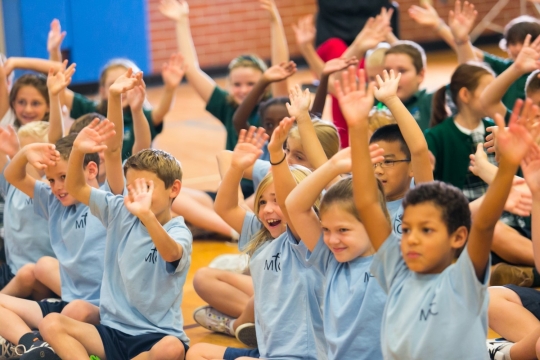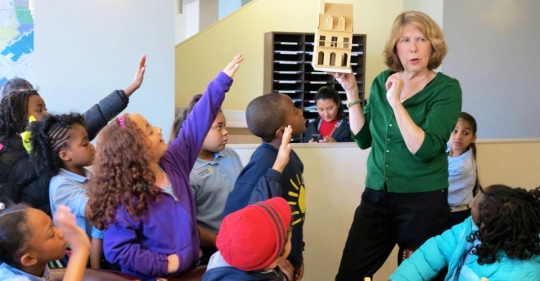
When San Diego Unified School District Superintendent Cindy Marten was first appointed in July of 2013, she already knew first-hand the impact that the Title I funding had on the students in the district. Prior to Marten’s appointment at superintendent, she was active in SDUSD as both a teacher and a principal and got to experience the programs offered at the school and classroom level. She felt that the Title I funds that the district was getting were not being utilized in a way which maximized the impact on their students. She felt that investing some of these funds into arts education and arts integration practices was the best way to maximize the positive effect that could be had and the research agrees. Read full story here.
Fresh Food, Local Artists: Bringing a Community Together
This past summer, Young Audiences New York (YANY) took to the streets to help support the Cypress Hills Local Development Corporation (CHLDC) in their efforts to increase access to fresh foods for the Cypress Hills Community. The event was the beginning of a new partnership between the two organizations and featured a vibrant performance and dance lesson from 7th Principle Dance and Drum Ensemble as well as an open air fresh food market. Through offerings such as the fresh food market, YANY and CHLDC hope to encourage concious, healthy eating. CHLDC also provides free cooking workshops and nutrition education, and focuses on selling seasonal fruits and vegetables sourced from local farms within a 250-mile radius. Read full story here.
Social Justice Professional Development Event Inspires 100 Teachers in Charleston, South Carolina
On September 19th, 2015, Young Audiences New York’s Literature to Life program presented a performance and professional development workshop for 100 Charleston County Public School Teachers, in Charleston, South Carolina. Young Audiences New York has designed this professional development workshop to support teachers to integrate the arts and social justice into their classrooms, as they learn to facilitate student discussions on issues of social justice and civic action- in the past, present and future. Read full story here.



